How to Get Free Diapers Through Medicaid
Does Medicaid cover diapers? Can you get FREE diapers on Medicaid?
Yes is the answer to both questions, and that can be the case for medical diapers for adults, diapers for babies, toddler diapers, and related items.
In fact, several types and brands of diapers are covered by Medicaid in many states — and getting free diapers through Medicaid can be much easier than you realize.
 Explaining why and how it all works, here’s a closer look at:
Explaining why and how it all works, here’s a closer look at:
- Basic Eligibility for Free Diapers with Medicaid
- What Types of Diapers Are Covered by Medicaid?
- What Are the Monthly Limits for Free Diapers Through Medicaid?
- How to Get Free Diapers with Medicaid: 6 Steps
- How Can I Get Diapers with Medicaid?
- How to Find Out More About Getting Free Diapers with Medicaid
This 4-min. guide to getting free diapers through Medicaid can help you figure out if you’re eligible, what’s covered in some states, and what it takes to get started.
If you need answers now from an expert in Washington, Oregon, or Idaho, simply contact MyMedSupplies (or call 888-441-1312) to speak with a real person who is ready to help.
Basic Eligibility for Free Diapers with Medicaid
To be eligible for free diapers through Medicaid, a few fundamental requirements must be met, including:
- Medicaid eligibility: You need to be eligible for and covered by Medicaid in your state in order to get free diapers through the program. Remember, coverage could be called something different in your area. Specifically, Washington Medicaid coverage is available via Community Health Plan of WA, Coordinated Care, Molina, and United Healthcare. Oregon Medicaid coverage is available via CareOregon, Trillium, Pacificsource, Moda, Columbia Pacific, OHSU, and Yamhill. Idaho Medicaid coverage is available via Molina and Blue Cross of Idaho.
- Medicaid diaper coverage: Next, check whether the diapers or incontinence products you need are covered by your Medicaid program. While most state Medicaid programs cover some type of diaper and incontinence supplies, others do not. Some may limit coverage too, requiring not only medical necessity but also documentation of attempts to try toilet training.
- A diaper supplier that works with Medicaid: If you are eligible under Medicaid and your program covers diapers, the final piece of the puzzle is to find a medical supply store that works with your Medicaid program and will bill them directly for the items you need.
If you’re in Washington, Oregon, or Idaho, you can turn to MyMedSupplies for all of your Medicaid-covered diapers and related products. We have years of experience working directly with state Medicaid programs in WA, ID, and OR, billing them for our clients’ medical supplies.
We also have a caring, well-trained team that can help you find covered products and get them set up to be shipped directly to your front door. Simply click the button below to get started.
What Types of Diapers Are Covered by Medicaid?
Most Medicaid programs cover several types of diapers and incontinence supplies to accommodate a range of medical needs for patients of different ages. Often, that means that diapers for adults, babies, toddlers, and children can be free via Medicaid in WA, OR, and ID. Sometimes, both diapers and diaper-related products like (but not limited to) the following are free too.
1. Diapers
Diapers for adults, children, toddlers, and babies may be covered by Medicaid. While some states define diapers and briefs separately, others combine these items in a single category when it comes to product specifications and monthly limits.
Additionally, it’s important to know that getting free diapers through Medicaid can come with different options in different states. In particular, state-run Medicaid programs tend to have their own stipulations about:
- Covered diaper brands: Not all brands or varieties of diapers are covered through state Medicaid programs, and the ones that are covered can change from time to time.
- How many diapers are covered through Medicaid each month: Amounts are limited per month, and these limits can vary by age. For example, Washington Medicaid limits disposable diapers in any size to 200 per month for those 3 and up. There are different limits for reusable cloth diapers and related products, like underpads for beds and other incontinence supplies.
2. Briefs
Both tabbed and taped briefs can be covered under Medicaid. That includes briefs with velcro or tape fasteners and elastic waistbands, as well as unisex briefs, in all sizes.
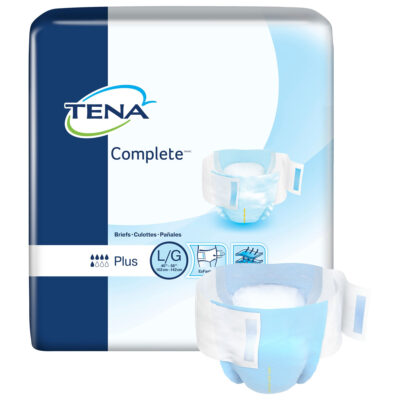
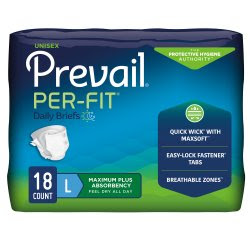
3. Pull-ups or Pull-ons
Pull-ons and pull-ups are underwear-like incontinence supplies with closed sides and no fasteners.
Designed for ease of comfort and use, pull-ons can be restricted by age in some states. Others may require participation in a formal toilet training program.
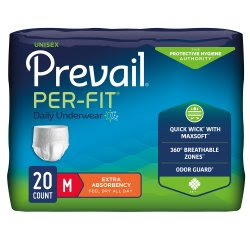
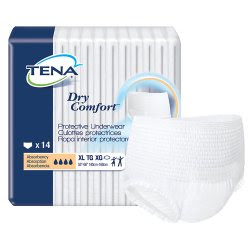
4. Pads & Pant liners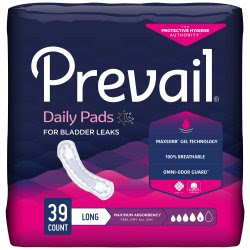
Used inside of cloth underwear, pads and pant liners are also typically covered by Medicaid in many states.
Additionally, guards, shields, and more may be available for free through several states’ Medicaid programs.
5. Booster Pads
Used inside another disposable product, booster pads can catch extra leakage while doubling or tripling the absorbing capacity of diapers, pull-ons, and briefs.
6. More
Beyond diapers, briefs, pull-ons, pads, pant liners, and booster pads, other diaper-related products can be covered by Medicaid too. Depending on your state, that could include items like (and not exclusive to):
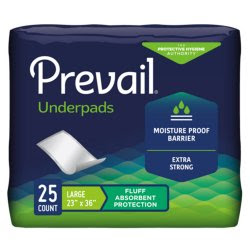
- Disposable gloves: Available for personal care needs, disposable gloves can help reduce the risk of infection.
- Disposable underpads: These flat pads are used to capture leaks and keep bedding clean during changes.
Notably, wipes and cleansing cloths are NOT covered by Medicaid or any other insurance provider. Nevertheless, high-quality wipes like those shown below can be purchased privately to facilitate hygiene and promote cleanliness.
The team at MyMedSupplies is very knowledgeable about the ins and outs of the medical products and diapers covered through Medicaid in Washington, Oregon, and Idaho. We can help you navigate the rules, limits, and requirements, taking care of the paperwork and billing your insurance, so you get free diapers through Medicaid delivered discreetly to your front door.
To get expert help getting free diapers with Medicaid in WA, OR, or ID, simply contact MyMedSupplies now.
What Are the Monthly Limits for Free Diapers Through Medicaid?
Eligibility for free diapers through Medicaid doesn’t mean unlimited diapers or other incontinence supplies are at your fingertips. Instead, most state Medicaid programs:
- Establish monthly limits for diapers, briefs, pull-ons, and other incontinence products
- Allow for “exceptions” to the rule, with medical necessity usually required
Here’s a closer look at the limits for free diapers with Medicaid in WA, OR, and ID. Remember, these limits could change in the future, so it’s best to talk to an expert if you need up-to-date info or help getting free diapers through Medicaid right now.
Limits for Free Diapers with Medicaid in WA, OR & ID
|
Incontinence Product |
WA Medicaid Limits (per month) |
OR Medicaid Limits (per month) |
ID Medicaid Limits (per month) |
|---|---|---|---|
| Disposable Diapers (for ages 3+) |
200 | 200 | 240 |
| Briefs & Pull-ups | 200 (ages 3 to 18)
150 (ages 19+) |
||
| Pads, Pant liners, Shields & Guards | 200 | ||
| DISPOSABLE UNDERPADS | 180 | 100 | 150 |
| DISPOSABLE GLOVES | 200 (100 pairs) |
100 (50 pairs) |
100 (50 pairs) |
It’s worth noting again that the limits above may not apply to you if you can demonstrate medical necessity for more. If you need details about how to do that and what’s next, MyMedSupplies is here to help. Simply reach out in one of the following ways:
- Call 888-441-1312.
- Email us here.
- Complete the New Customer Registration here.
How to Get Free Diapers with Medicaid: 6 Steps
Medicaid, as a collaborative federal and state program, features distinct rules, coverages, and exclusions across different states. For you, that means getting Medicaid coverage for diapers, briefs, pull-ons, and other incontinence products could follow a specific path, with its own unique forms and requirements.
With that in mind, there are still some general steps associated with most state Medicaid programs. The following walks you through each of these steps, explaining what you can generally expect in each phase.
1. Confirm You’re Covered by Medicaid in Your State.
To verify eligibility, consult your insurance documents or check the coverage details in your state’s Medicaid program. You can also explore Medicaid eligibility and enrollment in these resources:
- Washington Medicaid Eligibility
- Oregon Medicaid Eligibility & Enrollment
- Idaho Medicaid Eligibility & Plans
Additionally, it’s critical to be aware that your coverage may be called something like Community Health Plan of WA, Coordinated Care, Molina, Trillium, Pacificsource, Moda, or Blue Cross. So, don’t rule out your eligibility for free diapers through Medicaid just because “Medicaid” isn’t in your insurance provider’s name. Instead, verify your coverage directly with your insurance provider or state’s Medicaid office.
2. Establish Medical Necessity.
 Medicaid typically requires a medical need for diapers, briefs, pull-ons, and other incontinence products, especially for individuals of a certain age. To establish medical necessity for diapers through Medicaid:
Medicaid typically requires a medical need for diapers, briefs, pull-ons, and other incontinence products, especially for individuals of a certain age. To establish medical necessity for diapers through Medicaid:
- Visit your primary care provider.
- Get a prescription or paperwork from your doctor, stating your condition, your medical need for diapers, and any special quantities you may need.
Other documents that could be essential here can include (and may not be limited to):
- Diagnostic reports
- Medical records
- A letter of medical necessity that states your condition and why you need diapers, briefs, pull-ups, pads, and/or other incontinence products
3. Connect with an Approved Supplier.
Diapers and other incontinence products can be available from thousands of brick-and-mortar retailers, as well as online e-commerce sites. That does not mean that every source or diaper supplier accepts Medicaid. In fact, few do, so it’s crucial to identify a supplier that fits the bill here.
At MyMed Supplies, we accept Medicaid for customers in Washington, Oregon, and Idaho. We also offer 360° support to help you navigate the process with maximum ease — and so that you can get diapers, briefs, pull-ons, and other incontinence supplies delivered directly to your home.
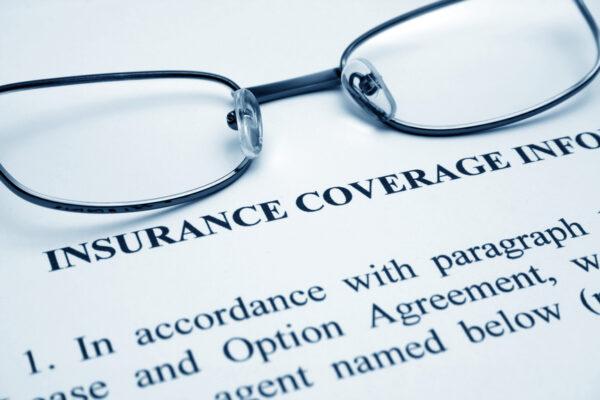
4. Check the Coverage Limits.
Limits for coverage differ by state, with many Medicaid programs setting limits like:
- Age restrictions for certain products
- Quantity limits for different items
- Limits on the brands and types of products covered
So, look at the limits that could apply to you, and don’t hesitate to contact an expert to verify whether the diapers or incontinence products you need are covered under WA, ID, or OR Medicaid.
5. Submit the Necessary Paperwork.
Documents to verify your eligibility and medical need usually have to be submitted to Medicaid for approval. If there are mistakes or missing documents here, delays or denials could follow. MyMedSupplies has seen this happen time and again; that’s why we oversee document submissions to state Medicaid programs to help ensure efficient processing and approvals, so you can get what you need ASAP.
6. Renew as Needed.
Once you’re approved for free diapers through Medicaid, it doesn’t mean you’re approved forever. Instead, you’ll likely have to re-verify your medical need from time to time, submitting fresh documents and active prescriptions.
How Can I Get Diapers with Medicaid?
The easiest way to get free diapers through Medicaid in Washington, Idaho, and Oregon is to contact MyMedSupplies. We work directly with Medicaid programs in those states, assisting clients with:
- Eligibility determinations: Are you eligible for free diapers through Medicaid?
If you don’t know, we can help you answer that question quickly. - Product selection: What types of diapers and other incontinence supplies do you need?
If you’re not sure or you’re looking to find diapers covered through Medicaid, that’s what we’re here for. Our team can share the options, explain coverage limits, and connect you with the right selection of diapers and/or other incontinence supplies, so you don’t have to guess or do a bunch of research to sort it all out. - Insurance billing: Do you want an expert to bill insurance for the cost of your diapers?
If so, you’ve come to the right place because that’s what MyMedSupplies does on the regular for our Medicaid clients. They get their free diapers covered through Medicaid, and the bills go to their insurance company. It’s a headache-free, zero-cost way to get Medicaid diapers. - Direct shipments: Do you want discreet shipping that delivers your Medicaid covered diapers, briefs, or pullups to your front door?
If so, we have you covered. We ship diapers and other incontinence supplies to clients in WA, OR, and ID, in generic, fully discreet packaging. - Monthly reorders: Do you need diapers covered by Medicaid on a monthly basis?
We can set up recurring orders, so you’re consistently getting free diapers with Medicaid each month, with minimal effort or hassle on your part.
For expert help getting incontinence supplies covered by Medicaid in WA, OR, or ID, contact a friendly specialist at MyMedSupplies.
How to Find Out More About Getting Free Diapers with Medicaid

The team at MyMedSupplies is standing by, ready to share more information and help you with the next steps. With 40+ years of experience in the medical supply and insurance space, MyMedSupplies is a premier medical supply store that has become a go-to destination for incontinence supplies and diapers covered through Medicaid.
Formerly known as Geneva Woods Health Supplies, LLC, MyMedSupplies accepts Medicaid in Washington, Oregon, and Idaho. We are also proudly accredited by the Accreditation Commission for Health Care, Inc. (ACHC) to provide services for Durable Medical Equipment, Respiratory Services, and Medical Supplies.
Contact our professional coordinators for expert help getting diapers covered by Medicaid in WA, OR, or ID. Our team is standing by, ready to answer your questions, provide first-class service, and help you get free diapers through Medicaid now.

